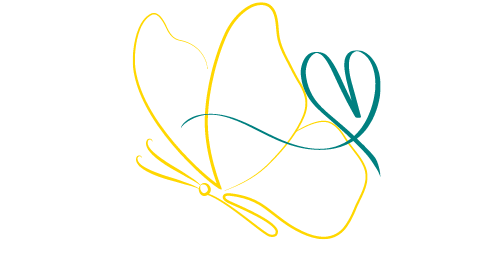We all experience a crisis now and then. The crisis could be relatively small like missing an important appointment or it could be something life-threatening such as a near-death experience or a serious diagnosis. Approximately 70% of people in the US will experience a more severe crisis in their lifetimes.
How is it that one person is completely wiped out, beaten down, and feeling bitter because of a crisis and another person seems to thrive and grow from a crisis emerging even better than before?
In the news, we hear a lot about PTSD (post-traumatic stress disorder). This disorder is very debilitating and often takes years for relief, if ever.
What you don’t hear about very often is the opposite, PTG- Post Traumatic Growth; where people experience amazing growth from even the most terrifying crisis. According to the Post Traumatic Growth Research Group at UNC Charlotte, post-traumatic growth “is positive change experienced as a result of the struggle with a major life crisis or a traumatic event”.
Doctors Richard G. Tedeschi, Ph.D., and Lawrence Calhoun, Ph.D. stated in their 2004 paper “Posttraumatic Growth: A New Perspective on Psychotraumatology” in Psychiatric Times, “the widespread assumption that trauma will often result in disorder should not be replaced with expectations that growth is an inevitable result. Instead, continuing personal distress and growth often coexist.”
Dr. Viktor Frankl, a Holocaust survivor, and noted Austrian psychotherapist said; “Life holds potential meaning under any conditions, even the most miserable ones.” Viktor Frankl wrote about the importance of the mind and how a person’s thought life created impact on his or her reality.
In my own personal experience of stopping breathing, going into the light and being unconscious for 12 hours in the summer of 2015 only to awaken and find out that a virus had attacked my heart, and I might have to go on the heart transplant list was a shock and crisis for me. I went from not being on any medication in my late forties to looking at the possibility of surviving maybe one to five years.
After I made it through the first few days of being in shock and seriously ill in ICU on a ventilator, I set my sights on how I could heal. I started searching for stories of anyone who spontaneously healed from my experience. Most of the literature was very grim, but I did find a few stories of spontaneous healing. I started to believe I could heal. I also knew I needed to be happy and around loving people.
Within three weeks, my heart returned to normal functioning. However, during that three weeks, I spoke to my parents every day. I felt more love for my family then I ever had. I felt more gentle and peaceful. I felt like I could “see” more clearly. I was determined to live fully and rest deeply.
I was almost as shocked to hear that my heart had returned to normal as I was shocked by getting sick in the first place.
I soon found that my life was better than ever. I appreciated everything more. I lived more in the present moment. I decided to do more things on my bucket list. I often used the question, “What am I waiting for?” My relationships became deeper. I was so happy to wake up each morning. And I realized I could still live the life of my dreams. All of my dreams could still come true. I didn’t need to stop dreaming just because I had to face something big!
If you are experiencing a crisis, you can increase the potential of turning your crisis into post-traumatic growth by:
- Spending more time with people that you love.
- Deciding what is most important to you in your life- contemplate the deeper meaning of life.
- Doing what you can to increase your daily joy. (What makes you laugh and smile? Mine were YouTube videos of animals and babies laughing).
- Staying positive (my cardiologist actually said that to me). I kept a gratitude journal which I have done for many years.
- Deepening your spiritual connection and practices. ( A daily prayer practice helped me greatly).
- Taking action steps to reduce the feeling of powerlessness or helplessness.
I took action by doing research on my condition and other people’s healings. I also reached out to people who had experienced something similar. I did what I could physically do. I looked at laundry and the dishes as a great gift. The first day I could make the bed without feeling breathless and weak felt like a miracle. Eventually, ten days after a nearly died, I went to a rock concert. I walked slow and took the stairs even slower.
A crisis. big or small, doesn’t have to derail you from your joy and success. I do encourage you to be patient and allow yourself to fully feel all emotions that arise. Even with growth, there will be times of disruption. I still get teary-eyed sometimes when I think about waking up in the hospital, not knowing where I was, and seeing my husband and son looking both terrified and relieved at the same time and learning that my daughters were in flight on the way to see me.
And even though my heart is on the low/normal side of functioning. I still have to take five medications every day (My hope is that one day I will be med-free) and monitor my blood pressure and sodium intake daily. Instead of thinking, “Why me?” I think, “I am so grateful I am here.” I am so grateful I can walk four miles. I am so grateful I can travel. I am so grateful I can run my business. I am so grateful I can watch my son play sports and dance with my husband and shop all day with my friends.”
You can experience challenges in dealing with your crisis and you can experience growth at the same time. Turn your thoughts to: How great it is that you are still here on this Earth, able to love, able to be, able to make a difference. There are many examples of people who have thrived in spite of a crisis: Nelson Mandela, Malala Yousafzai, Oprah Winfrey, Eric Berry, just to name a few.
Many of my clients have risen from dire circumstances and crises to be joyful, thriving, and successful in life.
You have what it takes to live your daily joy.
Sheri Kaye Hoff

Coach, Trainer, and Author, Sheri Kaye Hoff, is a Business Coach known for inspiring massive action and a catalyst for personal and business growth, joy, and profits in a way that is fun, relaxing, and fulfilling, Sheri inspires people to do the work they love and make more money. Sheri helps business owners and professionals to relax into success. She uses both spiritual and practical techniques to obliterate blocks and create dramatic change. She is a business, leadership, happiness, and inner game expert. She has overcome nearly dying, and the loss of her brother at an early age. She has made it her life mission to discover the keys to happiness and success and then share them with her clients and community. Learn More About Sheri





One thought on “Learn How to Turn a Crisis into a Triumph”
Comments are closed.